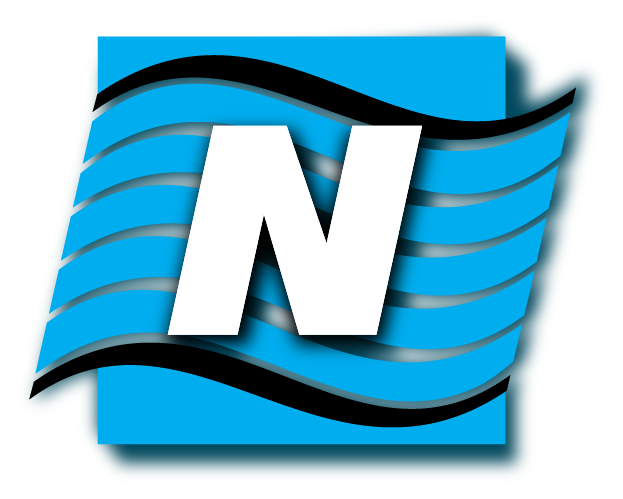
Liquid Cargo and Ballast Water Handling on LNG Tankers (LICOS)
Digital DeliveryDescription of the course
Target group
This training course primary is intended for Masters, Chief Officers and mates who are engaged in liquefied natural gas (LNG) tanker cargo and ballast handling operations.
This training course primary is intended for Masters, Chief Officers and mates who are engaged in liquefied natural gas (LNG) tanker cargo and ballast handling operations.
Objectives of the course
Those who successfully complete this course should be able:
– responsibilities under the International Convention for the prevention of Pollution
from ships as applicable to LNG tankers;
– methods and aids to prevent pollution
Those who successfully complete this course should be able:
- Plan and execute LNG tanker loading and unloading operations;
- Demonstrate a practical knowledge of LNG tankers and LNG tanker operations;
- Demonstrate knowledge of the carriage of liquefied methane the precautions during loading and unloading and care during the voyage;
- Demonstrate an understanding of the factors affecting trim, stability and stress as applicable to LNG tankers;
- Demonstrate a knowledge of maritime law embodied in international agreements and conventions, with special regard to:
– responsibilities under the International Convention for the prevention of Pollution
from ships as applicable to LNG tankers;
– methods and aids to prevent pollution
- of the marine environment by LNG tankers.
Duration of the training course
The duration of the training course is 4 working days.
The duration of the training course is 4 working days.
Price
The price is 750 EUR per person.
The price is 750 EUR per person.
Certificate validity
5 years.
5 years.
Special course program
Special course program means the alternative LNG Cargo Operations - Management Level (SIGTTO) course, which is best suited to those who already have some LNG experience and follows the syllabus set out by SIGTTO in their suggested LNG competence standard (second edition 2008)
at the management level.
The course follows the same dry-dock to dry-dock voyage cycle as the LNG Tanker Operations course but includes a wider range of subjects as set out in the SIGTTO syllabus:
Special course program means the alternative LNG Cargo Operations - Management Level (SIGTTO) course, which is best suited to those who already have some LNG experience and follows the syllabus set out by SIGTTO in their suggested LNG competence standard (second edition 2008)
at the management level.
The course follows the same dry-dock to dry-dock voyage cycle as the LNG Tanker Operations course but includes a wider range of subjects as set out in the SIGTTO syllabus:
- Familiarization and understanding of LNG transportation requirements;
- Manage and operate safety systems and equipment;
- Prepare and implement a detailed plan for the entire cargo cycle;
- Monitor and review cargo operations;
- Plan for and manage cargo operations under non-standard conditions;
- Plan for and manage cargo operations under emergency conditions;
- Ensure the integrity of cargo containment, cargo equipment and cargo related spaces;
- Awareness of the commercial aspects of LNG transportation.
The course program
DAY 1
– Types of Containment System
– Pipeline Arrangement and Cargo/Ballast Systems
– Instrumentation and Controls
– LNG Simulator Operation
– Basic operations and procedures
– Ballasting
– Deballasting
DAY 2
– Cargo Tanks Drying and Filling Insulation Spaces
– Inerting
– Gassing Up
DAY 3
– Loaded Passage
– Cool-down (Line) and Discharging
– Ballast Passage
DAY 4
– Inerting
– Gas Freeing (Aeration)
– Evacuating (Creating Vacuum) Insulation
– Spaces
– Introduction of system faults, malfunctions and accidents
– Remedial actions
DAY 1
- Familiarization with simulator:
– Types of Containment System
– Pipeline Arrangement and Cargo/Ballast Systems
– Instrumentation and Controls
– LNG Simulator Operation
– Basic operations and procedures
- Ballast Operations:
– Ballasting
– Deballasting
DAY 2
- LNG Operation-Sequence Overview (Dry-dock to Dry-dock);
- Special Operations and Procedures:
– Cargo Tanks Drying and Filling Insulation Spaces
– Inerting
– Gassing Up
DAY 3
- Special Operations and Procedures (cont.)
- Cargo Operations:
– Loaded Passage
– Cool-down (Line) and Discharging
– Ballast Passage
DAY 4
- Ship Operating Procedures:
– Inerting
– Gas Freeing (Aeration)
– Evacuating (Creating Vacuum) Insulation
– Spaces
- Operational Problems:
– Introduction of system faults, malfunctions and accidents
– Remedial actions
Course contents
The Training course covers the following topics:
The Training course covers the following topics:
- Cargo planning, safe loading and unloading cargoes;
- Maintaining of the ship stability and seaworthiness;
- Study of the ship design and systems;
- Cargo containment and cargo handling systems;
- Ship operating procedures and emergency procedures;
- Safety practices and equipment;
- General principles of cargo operations.
Income requirements
To be assigned on course, participant should present:
To be assigned on course, participant should present:
- Valid identity document (passport/ID card);
- National license or educational diploma;
- Advanced Training on Liquefied Gas Tanker Cargo Operations.
Training approaches and equipment:
During the training course, theoretical lessons are delivered using PowerPoint presentations, while
practical tasks are conducted on the latest Wärtsilä TechSim simulator, utilizing the LCHS 5000 LNG
Membrane Type Tanker model.
During the training course, theoretical lessons are delivered using PowerPoint presentations, while
practical tasks are conducted on the latest Wärtsilä TechSim simulator, utilizing the LCHS 5000 LNG
Membrane Type Tanker model.
Location
Digital delivery and onsite training is available
Digital delivery and onsite training is available
Approval
The course covers all subject areas recommended by IMO Model Course 1.36 “Liquefied Natural Gas (LNG) Tanker Cargo and Ballast Handling Simulator”.
The course covers all subject areas recommended by IMO Model Course 1.36 “Liquefied Natural Gas (LNG) Tanker Cargo and Ballast Handling Simulator”.
Meet the Experts Behind This Course
You might also be interested in following courses:
Check the course days on our calendar
Course in pictures:
Contact us

